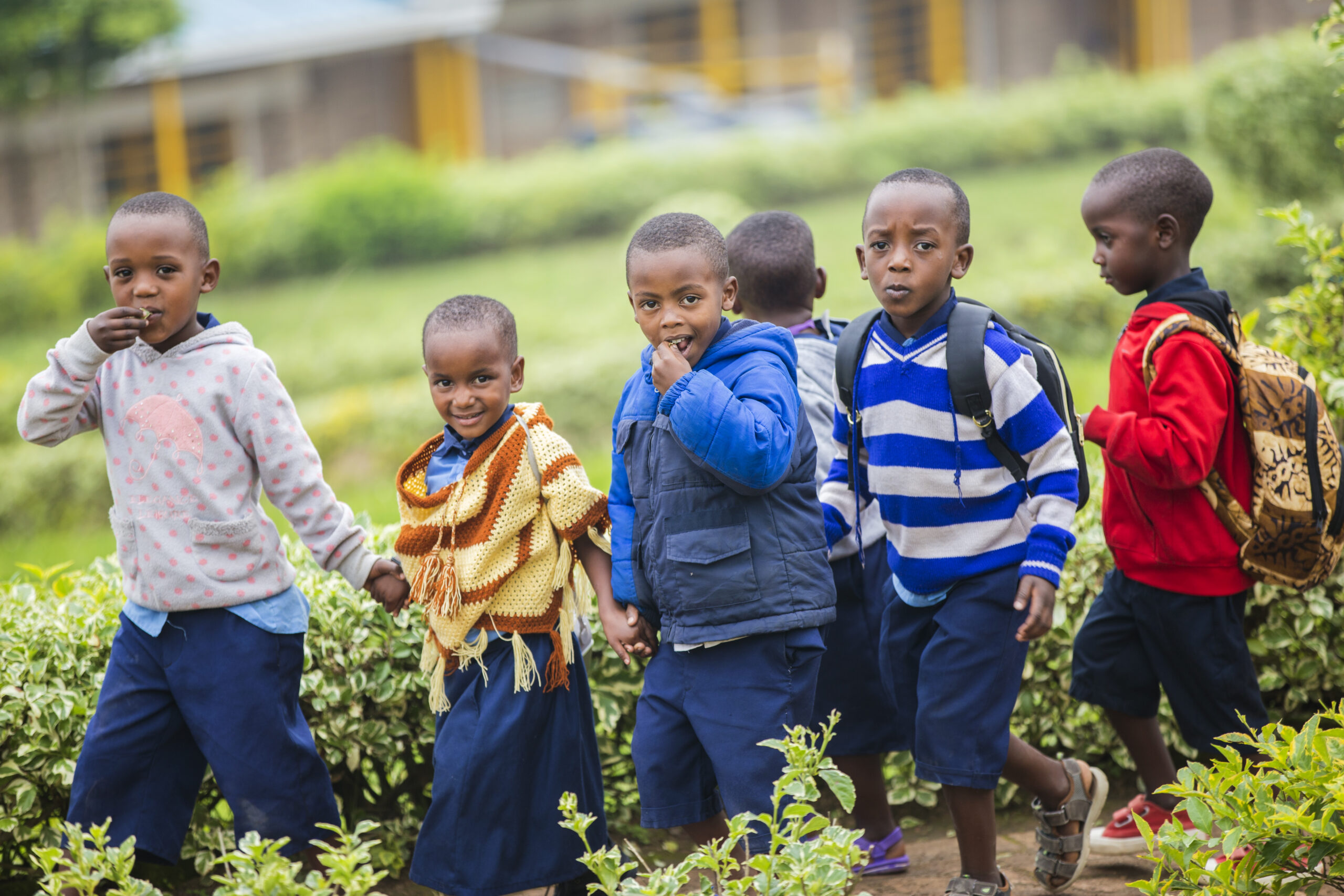Background
Following the Rwandan genocide and war in 1994 that claimed the lives of innocent Tutsis and moderate Hutus, Rwandan society continues to strive towards building a better future. Due to poverty and limited educational opportunities, rural populations are severely manipulated and affected by conflict and post-conflict situations. Sanejo believes that the most effective way to build a prosperous and productive society is to empower children and youth through education; ensuring that children in both rural and urban areas have a chance to equip themselves with the knowledge and skills to improve their lives.
Sanejo’s pilot project will work in conjunction with the Ntenyo School and surrounding community in order to upgrade a community school that currently enrolls over seven hundred children. The Ntenyo School project reflects the vision of David Mwambari’s grandfather who worked hard to provide education for future generations. Unfortunately, his life was cut short during the genocide before he could complete this dream. Now, the enthusiastic community and Sanejo desire to continue the tasks he began. Sanejo in partnership with Y-GAP and the Ntenyo community are working to complete and equip the school, hold health awareness workshops and provide English language skills to both teachers and students.
Phase One (2009-2011, Completed)
Focused on establishing presence in Ntenyo and developing relationships with the Ntenyo community as well as local leaders. We also formed partnerships with International Organizations such as YGAP, Gobal Giving, ROTARACT-Rwanda and many others. In the past two years, Sanejo team and partners developed a volunteer program that brought together International and Local youth who gained experience. With partners we trained 13 teachers on English and teaching skills. Over 1,000 students were exposed to different learning methods and introduced new games for recreation periods. Five modern classrooms were completed equipped with desks and other learning tools and latrines rehabilitated to good clean standards. With support of Sanejo’s partners the Ntenyo School’s image was revamped and put on local and International map instead of being closed as it was planned two years ago. Its not longer seen as a dangerous learning environment instead a competitive school with a great future.
Phase Two (2011-2013)
Will consist of demolition of three oldest classrooms and the building of seven new state of the art classrooms. We will continue to bring in resources to improve teachers’ skills to good standards. We aim to develop a stronger volunteer program for local and international youth. Sanejo will also expand its network and forge partnerships with other businesses, individual entrepreneurs and other interested partners. We hope to have electricity in all new classrooms, more land for the school in partnership with Ruhango local government and the Anglican Church of Rwanda-Shyogwe Diocese. We plan to see an increase of enrollment (up to 10%) ever year and decrease drop out rates to increase number of graduates from primary by 50%. We hope also to partner with teachers and start a cooperative for them that will increase their income.
Phase Three (2013-2015)
Will focus on completion of another six buildings. Sanejo and partners plans to complete a library, computer lab and a community hall finished in this phase. We will train teachers further to reach excellent of teaching methods and request the local government to increase number of new well trained teachers for secondary school level teaching. At end of phase three, Ntenyo School should be equipped with a water system that will be run by the school and benefit the community. At the end of phase three, we hope to have measurable outcomes, a database that we can use to track progress and a model that can be used in other communities with similar challenges.

